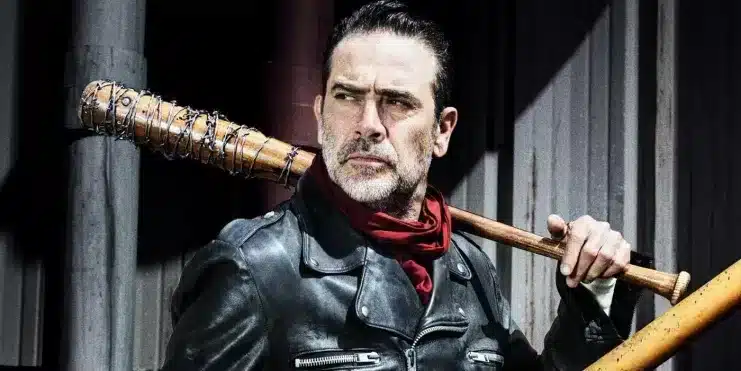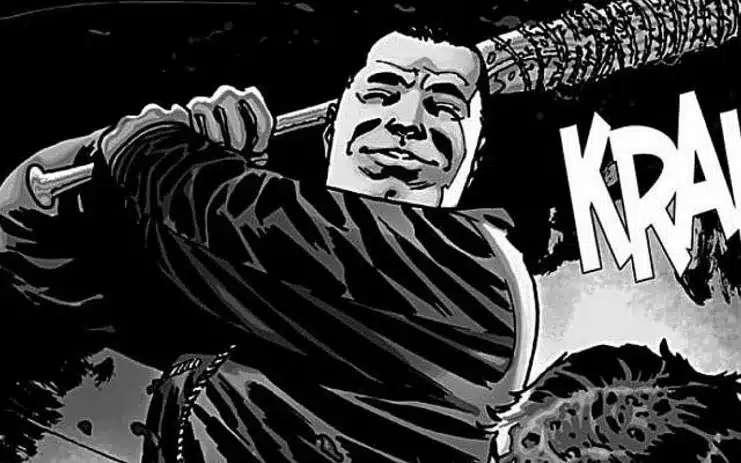
Was it wise to keep Negan alive? A moral twist that challenges the nature of salvation
In a world where the line between good and evil is lost at each apocalyptic dawn, ‘The Walking Dead’ presents a moral crossroads that resonates beyond its pages and screens. Far from being an act of mercy, Rick Grimes’ act to save Negan’s life creates a dilemma that changes the soul of the series. Negan was not only the central character of his literal redemption, but also became the center of a fundamental change in the moral order of ‘The Walking Dead’.

Plot twist
From his iconic appearance, Negan has emerged as a quintessential villain, his brutality and ruthlessness injecting a dose of raw reality into the universe of ‘The Walking Dead’. But it was his choice to keep him alive that redefined the course of the story, shifting his focus from the narrative of villains to the ethical grays of a post-apocalyptic existence, along with the heroes.
The complexity of the characters, especially figures like Rick Grimes, took on new meaning. Rick shows a rarely seen depth of heroism in his decision not to kill Negan, where forgiveness and revenge intertwine in a moral dance. This decision raises questions not only about the power shift in the series, but about justice, repentance, and the possibility of redemption even in dark times.
Negan’s existence explores what it means to be a leader and a hero in a broken world. Rick promised Negan a life in prison, he actually resolved that the future is unpredictable, each character must face their own and the morals of the people around them.


From the villain to the main character
As Negan transforms from a feared antagonist to a complex protagonist, ‘The Walking Dead’ enters uncharted narrative territories. His path to redemption, however controversial, reflected the power of narrative to explore the potential for change and growth, even in the most difficult of circumstances.
Negan’s importance is undisputed, both in and out of the series. His influence extends beyond the screen, influencing the way viewers perceive villains and heroes, challenging the boundaries between them. In this sense, the decision to keep him alive becomes a study of human nature and a search for meaning in the midst of chaos.
The legacy of the decision
In addition to changing the course of ‘The Walking Dead’, Negan’s survival left an indelible mark on the American fiction landscape. This narrative turn became a benchmark for the creation of complex and morally ambiguous characters, inspiring generations of writers and creators to explore the depths of their own fictional universes.


The answer will vary with each fan and critic, but what is indisputable is the impact of this decision on ‘The Walking Dead’ narrative and beyond. Like Alan Moore’s transformative work ‘Watchmen’, Negan’s saga forces us to reconsider our understanding of justice, heroism and redemption.
Negan’s existence and the moral complexity it brings reminds us of the power of fiction to explore the dark and light side of humanity, beyond redefining ‘The Walking Dead’. In the end, Negan’s decision to stay alive isn’t meant as a mistake, but as a reminder that in the larger canvas of the narrative, villains also have a place on the road to redemption.